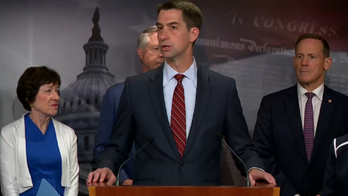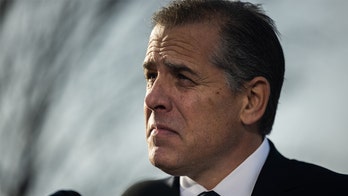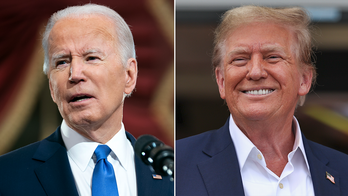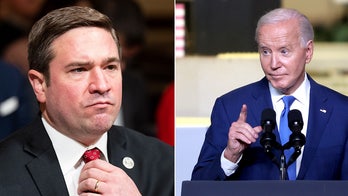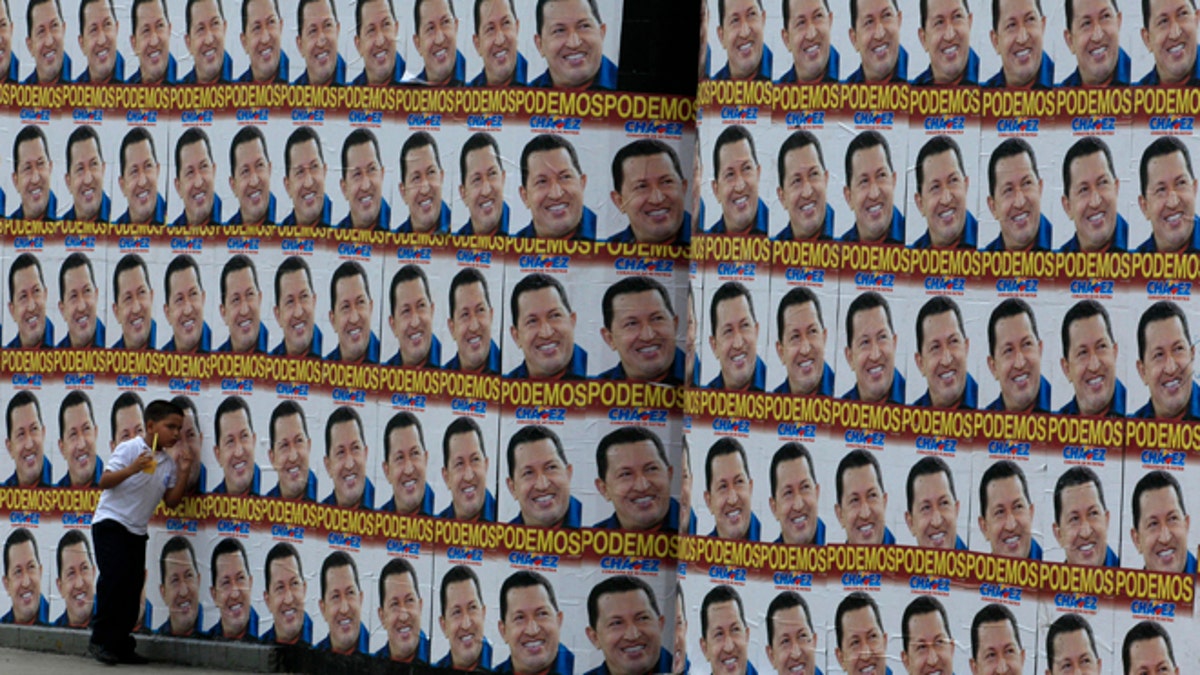
A boy walks beside a a wall covered with campaign posters of Venezuela's President Hugo Chavez in Caracas, Venezuela, Tuesday, Sept. 25, 2012. Chavez held a 10-point lead over rival Henrique Capriles in a polling company's final survey ahead of the Oct. 7 election, but the report released Tuesday showed Capriles narrowing the gap. (AP Photo/Fernando Llano) (AP2012)
Two weeks before the Venezuelan presidential elections, local polls show a tight race between 14-year incumbent Hugo Chávez and his center-left rival, Henrique Capriles. By all accounts, this is the opposition’s last chance to put a stop to Mr. Chávez’s “Bolivarian Revolution” through the ballot box.
Chávez, who came to power through democratic elections in 1998, bases his revolution on the idea of an unlimited majority rule. For Chávez, a democratic mandate means a blank check to take over private property, to stifle free speech, to re-write the country’s constitution, to muzzle press freedom, and to turn the government over to his party followers.
Through unlimited majority rule, Chávez has transformed Venezuela into a regime where the president is above the rule of law, a bureaucracy carries out his orders, and where the country’s vast oil revenues to are used to increase social spending and create a class of voters – a permanent majority – dependent on government largesse.
The results have been less than stellar. Venezuela’s inflation rate is the highest in Latin America. and Caracas has one of the world’s highest murder rates. Electricity, food and water shortages are common. Today’s Venezuela is a deeply polarized society between Chávez’s red-shirted followers and the rest of the nation.
Despite his disastrous policies, Chávez can still claim he was “democratically elected.” But, what is democracy when their elected government is erasing people’s fundamental rights? If people vote themselves into slavery, does it make them any less slaves?
This modern-day road to serfdom is the outcome of a set of ideas, on both the Left and the Right, known as statism, holding that the citizen has no rights which the government has to respect; the only rights individuals have are those granted to them by the government. If for any reason, including expediency, the state decides, it may take away freedom of speech, of the press, of private property, etc., with impunity. And the person advocating such ideas, as a great philosopher put it, is or wants to be the state!
In Venezuela, and most of Latin America, statist ideas are triumphant, winning over both the Left and the Right. Whether through a military coup or a “democratic” election, the power of the state is seen as paramount.
In contrast, the idea of constitutional liberty is less concerned with selecting government officials, and more about protecting the individual’s rights against coercion. In the United States, for example, the practice of individual rights is what distinguishes us from any number of so-called “democracies.” Governments are instituted, as the Declaration of Independence says, “to secure these rights” meaning to guarantee freedom of the individual from arbitrary authority.
If, in the coming elections, the Venezuelan people peacefully vote out Chávez, they will have taken the first step in the recovery of freedom. The real lesson they need to take to heart is one of form and function: democracy is a form to choose our government in a peaceful manner; the government’s function is to guarantee its citizens’ individual rights.
The real revolution in thinking against Chávez’s, or any other, tyranny will come when the people demand a guarantee on the individual rights to life, to liberty and to property, which may not be taken away by any state, even one backed by a super-majority.

